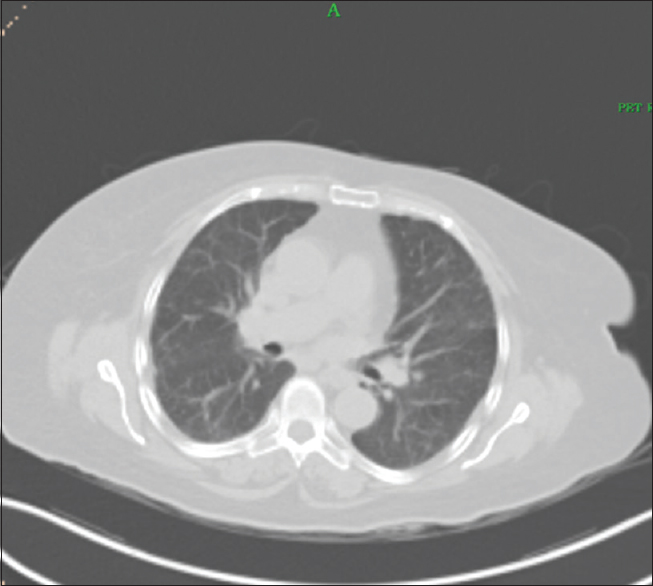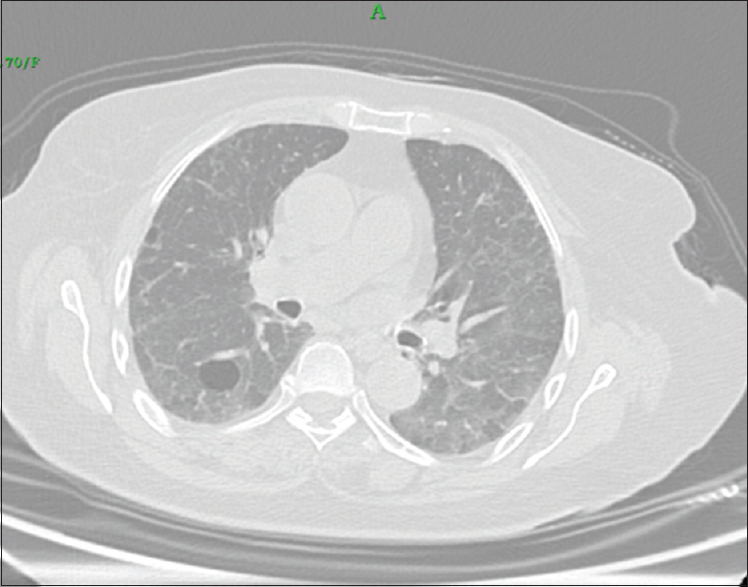Translate this page into:
Palliative Chemotherapy in Elderly Patient with Comorbidities: Is It a Paradox?
Address for correspondence: Dr. Venkata Pradeep Babu Koyyala, Room: 2262, 2nd Floor C Block, Rajiv Gandhi Cancer Institute and Research Centre, Sector-5, Rohini, New Delhi - 110 085, India. E-mail: pradeepbabu.koyyala@gmail.com
This is an open access journal, and articles are distributed under the terms of the Creative Commons Attribution-NonCommercial-ShareAlike 4.0 License, which allows others to remix, tweak, and build upon the work non-commercially, as long as appropriate credit is given and the new creations are licensed under the identical terms.
This article was originally published by Wolters Kluwer - Medknow and was migrated to Scientific Scholar after the change of Publisher.
Sir,
Head and neck cancers remain primarily cancer of elderly with an increasing trend in young population.[1] Although elderly patients constitute 47% of all cases of head and neck cancers, <4% were represented in clinical trials as revealed in a meta-analysis of 93 clinical trials.[23] Elderly patients with comorbidities pose a challenge in decision-making for treating medical oncologist. The reasons are multiple. The main reason being the lack of prospective data for various therapies in this age group, poor performance status at presentation, comorbidities that preclude some drugs, and in India in particular lack of social and financial support. We are reporting this case report to highlight the fact that chemotherapy is as integrative part of palliative cancer care and should not be withheld for patients with comorbidities in good performance status.
A 72-year-old elderly nondiabetic and non-hypertensive woman with a known history of chronic kidney disease who was under the care of nephrologist presented to our hospital with complaints of swelling and pain in the left submandibular region for the past 6 months. On examination, clinically hard mass of 3 cm × 4 cm lesion in the left mandibular region nodes was seen, and lymph nodes were not palpable in the neck. Biopsy from the lesion revealed squamous cell carcinoma. Her glomerular filtration rate (GFR) was 23.73 mg/dl on DTPA scan. Magnetic resonance imaging face and neck and chest X-ray were done. She underwent wide local excision of the left submandibular gland with reverse marginal mandibulectomy and left modified radical neck dissection with buttressing of the floor of mouth by transposition of the sternocleidomastoid muscle. Histopathology revealed 3.4 cm × 2.2 cm × 2 cm lesion, squamous cell carcinoma histology, margin 1 mm away, perineural invasion was positive, and 1 out of 5 lymph nodes were positive with extracapsular extension. She received radiotherapy to a dose of 66Gy/33 # to 95% PTV54. Concurrent chemotherapy was not given in view of renal dysfunction. She was on regular follow-up since then.
Five months later, she presented with cough. Contrast-enhanced computed tomography chest revealed bilateral cavitatory lesions in lung parenchyma. Positron emission tomography–computed tomography was done and revealed bilateral cavitatory and noncavitatory lesions parenchymal, and subpleural lesions were seen [Figure 1]. Fine-needle aspiration from right lung nodule revealed Squamous cell carcinoma. She was referred to medical oncology department for palliative chemotherapy. DTPA scan revealed total GFR of 23.73 ml/min (left 9.71 and right 14.01 ml/min). Her eastern cooperative oncology group performance status was 2, and she is symptomatic for cough. Nephrologist opinion was taken and advised against any nephrotoxic chemotherapy. She was planned on single agent palliative chemotherapy with weekly paclitaxel 80 mg/m2. After four cycles, she had symptomatic relief in cough and reevaluation after 9 weeks revealed complete response to therapy [Figure 2].

- Positron emission tomography–computed tomography image: Left lung shows a tiny fissural nodule with no significant tracer uptake

- Postchemotherapy: Left lung fissural nodule has disappeared
Chemotherapy which may cause various side effects is not a paradox in elderly patients even with comorbidities. The selection of patients and chemotherapy are the key factors that determine the outcome in elderly patients with comorbidities, which may provide excellent relief in symptoms due to cancer and improve the quality of life, which is essentially the end point of palliative cancer care.
Declaration of patient consent
The authors certify that they have obtained all appropriate patient consent forms. In the form the patient(s) has/have given his/her/their consent for his/her/their images and other clinical information to be reported in the journal. The patients understand that their names and initials will not be published and due efforts will be made to conceal their identity, but anonymity cannot be guaranteed.
Financial support and sponsorship
This study was supported by Rajiv Gandhi Cancer Institute and Research Centre, New Delhi.
Conflicts of interest
There are no conflicts of interest.
Acknowledgment
We would like to acknowledge the patient's co-operation and trust on us.
REFERENCES
- Enrollment of elderly patients in clinical trials for cancer drug registration: A 7-year experience by the US Food and Drug Administration. J Clin Oncol. 2004;22:4626-31.
- [Google Scholar]
- Increasing incidence of oral tongue squamous cell carcinoma in young white women, age 18 to 44 years. J Clin Oncol. 2011;29:1488-94.
- [Google Scholar]
- Prevalence of oral HPV infection in the United States, 2009-2010. JAMA. 2012;307:693-703.
- [Google Scholar]





